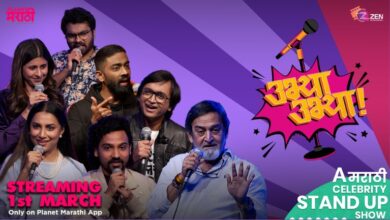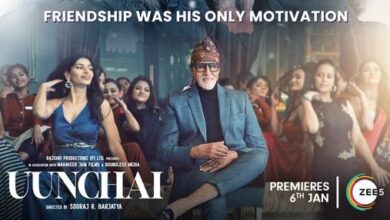
The music industry has been hit below the belt by Coronavirus with live performance revenue the biggest casualty. A seven-month shutdown is estimated to cost the industry a lot by way of sponsorships with longer delays being even more devastating. In its part, the said industry is fighting back with new ways to monetise music consumption and innovative models.
“COVID has had a devastating impact on the music industry particularly the live concert segment. Several talented singers and highly capable musicians who were dependent on live performances for their livelihood have been very badly hit. To compound this problem, some families have had bereavements as a result of which the artistes are financially and emotionally drained. There has to be some mechanism from existing institutions to provide those affected with a safety net,” says music event organiser Kishore Kumar.
Now, the attention has been turned towards having shows on Facebook, Instagram among others. Though the audience is not sitting at one place, they are watching the programme in the comfort of their homes.
As far as the returns are concerned, the organisers are happy. “Something is better than nothing,” adds Kishore Kumar.
The crisis is likely to accelerate underlying trends in the music industry, based on the importance of streaming, which has grown from 9 to 47 per cent of the total industry revenues in just six years.
In the initial wake of bans on mass gatherings, some venues offered live-streaming of performances. However, even these formats were suspended as those sites have closed. Now, artists are going direct to fans from their own homes. This is not new, but the pandemic has expanded the audience available and record labels are facilitating it by providing live streaming equipment to performers. Streaming platforms have also enabled new monetisation methods including memberships to artist channels that allow early or exclusive access to content as well as virtual gatherings and paid-commenting features.
These new ways for musicians, labels and venue providers to engage with followers might be a strategy for stronger long-term connections with audiences.
Avers music historian and head honcho of a musical group Keep Alive, Manohar Iyer, “To my limited knowledge, the earliest and major impact of any worldwide outrageous outbreak on the Indian film industry was the outbreak of the World War II in the late 1930s. Thereafter, now in 2020 the worldwide corona virus pandemic which literally crippled the entire global economy and put a virtual halt to every activity. The uncertainty of the situation improving and returning to normalcy increased with every passing day and people had almost come to terms with the grim situation.
Narrowing down the impact of Covid 19 to the music industry, particularly the stage events with which I have been associated for over two decades, the impact was harrowing and heart breaking.
With all events coming to an abrupt end from the second week of March 2019, it was difficult to say who the worst is affected is: the auditoriums, rehearsal halls, the organisers, the singers, the musicians, the technicians or the staff. If one sees it the creative lot is deprived of their main source of livelihood, the connoisseurs are robbed of the entertainment and its emotional experience.
One remarkable thing is none of them have lost hope. True to the adage, every dark cloud has a silver lining and all is not forever and lost forever. The human heart has limitless passion for hope the artistes and organisers never let that whole die. Within a few months after it closed just last year, they bounced back with the same zeal and zest and started presenting (streaming is the new jargon coined for it) ‘virtual programmes’ through YouTube, Facebook and other outlets and reconnected with the music lovers.
The auditoriums and rehearsal halls ‘opened’ up by offering alternative ways of putting up a show. They made available their stage to rehearse for or shoot the programmes with limited number of musicians and singers; the compares too did their anchoring bit at the said venues or from their homes with all its limitations and constraints. The organisers ‘streamed’ the programmes at nominal charges or even free with a mild plea for voluntary contributions and donations.
Music lovers were beset with a problem of choice; which one to view, which one to skip with a heavy heart. With their techno savvy ingenuity, they had their own ways to watch both or all that they didn’t want to miss. The anthem was: The show must go on. And the show goes on with the same undying spirit, with the same unabated enthusiasm and they are getting used and attuned to the changing scenario. After all, change is part of human life and we have seen drastic changes, reforms, revolutions in the filmy firmament and music scene. And every change is backed by what is called HOPE.
The same thing has been repeated this year with the virus striking hard. At this juncture too there is hope with the Unlocking process in progress.”
I may have failed before, I may fail now but I am not the one to lose hope and give up. So what if the days of despair and disillusionment are long. It will set sometime or the other; the day has to set in the evening, the evening into the night and the night into a new dawn,” Iyer adds.
There are still hopes of a revival at this juncture. Many performing artistes are tying up with business houses to stream their shows particularly on Facebook to charm their fan.
Hope things pick up from here on.











